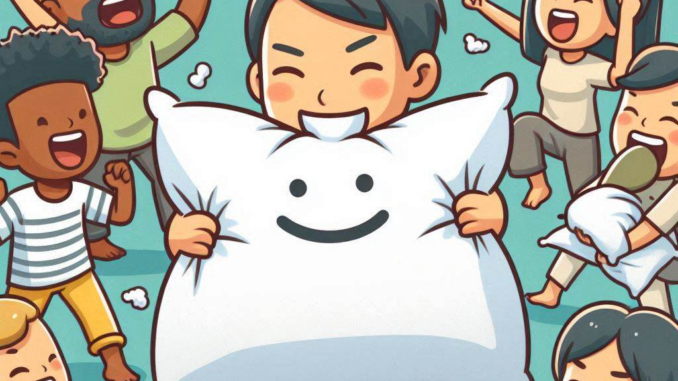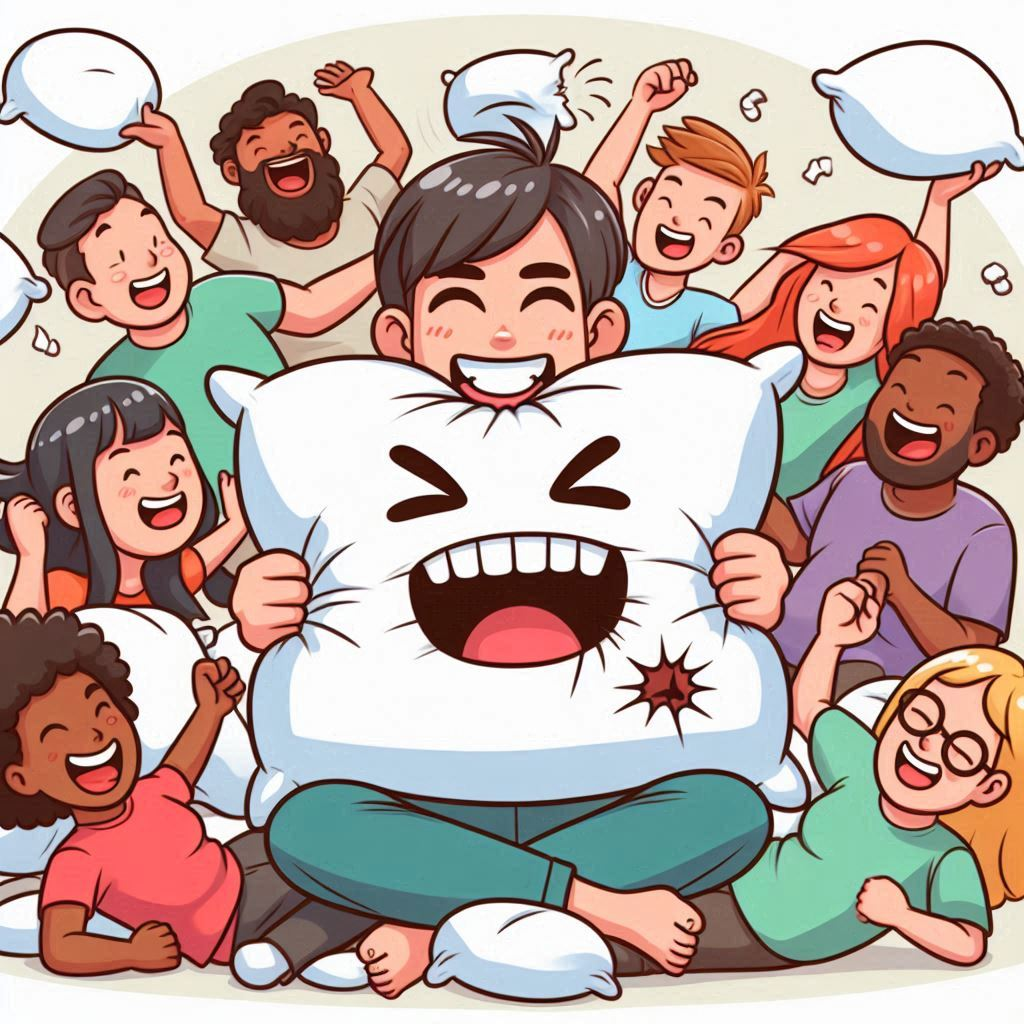
What is a Pillow Biter?
Hey there! Ever heard someone use the term “pillow biter” and wondered what in the world they were talking about? Well, you’re in the right place. We’re going to break down this phrase, its history, and why it’s not cool to use. Stick around, and you’ll learn something new!
Quick answer: A “pillow biter” is an old, mean way to talk about gay men. It’s not a nice term and can really hurt people’s feelings. We should avoid using it and choose kinder words instead.
The Nitty-Gritty: What Does “Pillow Biter” Really Mean?
Let’s get straight to the point. “Pillow biter” is a nasty slang term that some people use to make fun of gay men. It’s based on old, wrong ideas about how gay people have sex. The term suggests that during sex, a man might bite a pillow to deal with pain or keep quiet. Pretty crude, right?
This term is part of a bigger problem called homophobia, which means being scared of or mean to gay people. Using words like this can make gay people feel bad about themselves and unsafe in their community.
Where Did This Term Come From?
The exact beginning of “pillow biter” is hard to pin down. It probably started way back when people didn’t understand or accept gay relationships. In those times, being gay was often seen as wrong or even illegal in many places.
Words like this came from a mix of fear, not understanding, and wanting to make fun of people who were different. It’s like how kids on a playground might make up mean nicknames for someone they don’t like or understand.
A Walk Through Time
Let’s take a quick trip through history:
- 1950s-1960s: Being gay was often seen as a mental illness or a crime.
- 1970s-1980s: The gay rights movement started to gain strength, but so did opposition.
- 1990s-2000s: More people began to accept gay relationships, but hurtful language still existed.
- 2010s-present: There’s been a big push to stop using words that hurt LGBTQ+ people.
Why It’s a Problem
You might be thinking, “It’s just a word, what’s the big deal?” Well, words have power. They can make people feel happy, sad, angry, or scared. When someone uses a term like “pillow biter,” it can:
- Make gay people feel ashamed or scared
- Encourage others to be mean to gay people
- Keep wrong ideas about gay relationships alive
- Create a world where some people don’t feel safe being themselves
The Ripple Effect
Using hurtful words doesn’t just affect the person you’re talking to. It can spread like ripples in a pond:
- Someone uses the term “pillow biter”
- Others hear it and think it’s okay to use
- More people have started using it
- Gay people hear it more often and feel worse
- Some people might even use the word to bully others
A Personal Story
I remember when I first heard this term. I was in high school, and a group of guys were making fun of another student. They called him a “pillow biter” and laughed. I didn’t know what it meant, but I could see how hurt the other student looked.
Later, I learned what the term meant and how hurtful it was. I felt bad for not standing up for the student. It taught me an important lesson about the power of words and the importance of being kind to everyone, no matter who they love.
The Big Picture: Why Language Matters

The way we talk shapes the world around us. When we use kind, respectful words, we create a world where everyone feels welcome. But when we use mean words, we make the world a harder place for some people to live in.
The Science of Words
Did you know that the words we hear and use can actually change our brains? It’s true! Scientists have found that hearing mean words can make people feel stressed and scared. On the flip side, kind words can make people feel happy and safe.
What Can We Do?
So, now that we know “pillow biter” is a hurtful term, what can we do about it? Here are some ideas:
- Learn: Keep learning about LGBTQ+ issues and the power of words.
- Speak up: If you hear someone use this term, kindly explain why it’s not okay.
- Use inclusive language: Choose words that make everyone feel welcome.
- Be an ally: Support LGBTQ+ people in your community.
- Spread kindness: Use your words to make the world a better place.
Better Words to Use
Instead of using hurtful terms, try these respectful ways to talk about LGBTQ+ people:
- Gay
- LGBTQ+
- Queer (when used respectfully)
- Same-sex couple
- LGBTQ+ community
Remember, it’s always best to use the terms people prefer for themselves!
The Bigger Picture: Creating a Kinder World
Thinking about words like “pillow biter” is part of a bigger conversation about how we treat each other. It’s about building a world where everyone feels safe and respected, no matter who they are or who they love.
Small Changes, Big Impact
Every time we choose a kind word over a mean one, we’re making the world a little bit better. It might not feel like much, but these small choices add up. Think of it like saving money – every penny counts!
Moving Forward: What’s Next?
Now that you know about the term “pillow biter” and why it’s harmful, you might be wondering what to do next. Here are some ideas:
- Reflect: Think about the words you use and how they might affect others.
- Educate: Share what you’ve learned with friends and family.
- Support: Look for ways to support LGBTQ+ people in your community.
- Keep learning: There’s always more to learn about kindness and respect.
Wrapping It Up
So there you have it – the lowdown on “pillow biter.” It’s an old, mean term that we’re better off leaving in the past. Instead, let’s focus on using words that bring people together and make everyone feel valued.
Remember, the words we choose matter. They can hurt or heal, divide or unite. By picking kind words, we’re not just being nice – we’re helping to create a world where everyone can feel safe and happy being themselves.
What will you do with this new knowledge? Maybe you’ll have a conversation with a friend about respectful language, or maybe you’ll speak up next time you hear someone use a hurtful term. Whatever you choose, know that you’re making a difference!
Thanks for taking the time to learn about this important topic. Keep spreading kindness, one word at a time!


Leave a Reply